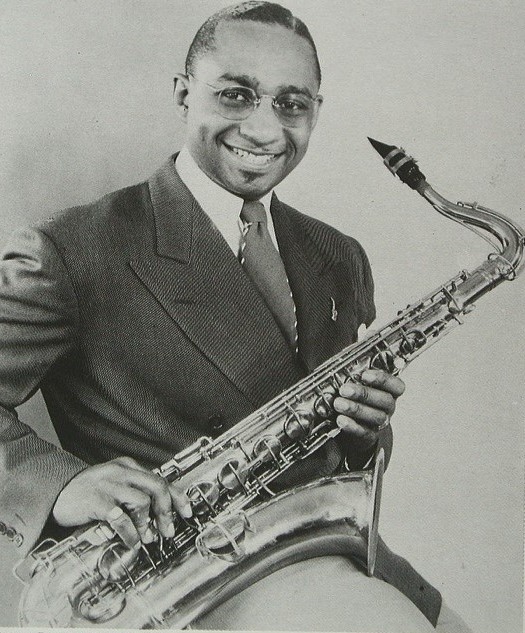JACK McVEA
A pesar de ser el autor de una de las canciones más plastas que he escuchado en mi vida, OPEN THE DOOR RICHARD....... banda sonora original de un vodevil de la época en donde se representaba que alguien estaba haciendo cosas detrás de una puerta imaginaria...... .....y el que quería entrar suplicaba y suplicaba que por favor le abriera repitiendo una y mil veces el mismo cansino estribillo . a pesar de todo ello decimos, McVEA fué un extraordinario saxofonista que también creó piezas de BOOGIE - WOOGIE, aqui tenéis unas muestras :
McVea (November 5, 1914 – December 27, 2000) was an African American, swing, blues, and rhythm and blues woodwind player; he played clarinet and tenor and baritone saxophone. His father was the noted banjoist Satchel McVea, and banjo was Jack McVea's first instrument.
Born John Vivian McVea in Los Angeles, California, and playing jazz in Los Angeles for several years, he joined Lionel Hampton's orchestra in 1940. From 1944 on he mostly worked as a leader. Perhaps his most impressive performance as a sideman in those years was at the first Jazz at the Philharmonic concert in 1944.
McVea was leader of the Black & White Records studio band and was responsible for coming up with the musical riff for the words "Open the Door, Richard".[2] Ralph Bass got him to record it in 1946 and it became immensely popular, entering the national charts the following year, and was recorded by many other artists.
From 1966 till his retirement in 1992 he led a group that played Dixieland jazz in New Orleans Square at Disneyland, called The Royal Street Bachelors. When formed, the trio consisted of McVea on clarinet, Herman Mitchell on banjo, and Ernie McLean on guitar and banjo. According to McVea, he was not much of a clarinetist but learned overnight to play three songs to secure the job.
He is also known for his playing on T-Bone Walker's "Call It Stormy Monday (But Tuesday Is Just As Bad)". In 1945 he played tenor sax in a recording session for Slim Gaillard alongside Charlie Parker and Dizzy Gillespie.




Comentarios